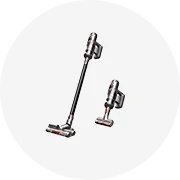
















Water boilers are indispensable appliances in various settings, providing a consistent supply of hot water for both domestic and commercial purposes. These units are designed to heat a large volume of water efficiently and maintain it at a desired temperature for instant use. From hospitality to healthcare, water boilers cater to a multitude of needs, ensuring that hot water is always available.
There are several types of water boilers, including electric kettles, hot water urns, and commercial-grade water heaters. Each type serves a specific application, ranging from a quick cup of tea at home to meeting the high demands of a busy restaurant or hotel. The versatility of these appliances makes them a staple in environments where hot water is a necessity for both convenience and functionality.
Electric water boilers come with a variety of features such as temperature control settings, automatic shut-off, and boil-dry protection. The materials used in manufacturing water boilers are crucial for durability and safety. Stainless steel is commonly used for its corrosion resistance and ease of cleaning, while some models may incorporate plastic components for handles or base units to minimize heat transfer.
Using a water boiler offers several advantages, including energy efficiency and time-saving benefits. They are designed to heat water faster than traditional stovetop methods and maintain the temperature with minimal energy expenditure. Moreover, the insulation properties of modern water boilers ensure that the water remains hot for extended periods, reducing the need to reheat.
When selecting a water boiler, capacity and speed are critical considerations. For commercial settings, a large-capacity water boiler can serve numerous customers without the need for constant refills. Speed is also essential, as a quick boil time can enhance efficiency in a fast-paced environment. Additionally, the design and footprint of the water boiler should be considered to ensure it fits within the designated space.
Proper maintenance of a water boiler is essential for longevity and performance. Regular descaling to remove mineral buildup, cleaning of components, and inspection for wear and tear can help keep the boiler in optimal condition. Users should follow the manufacturer's guidelines for care to ensure the appliance continues to function effectively.